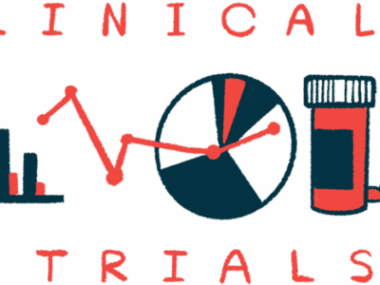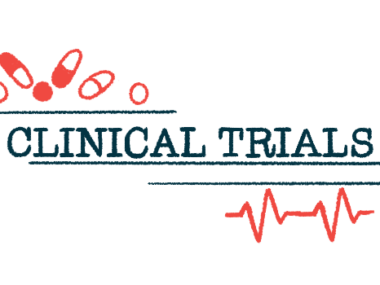FDA grants breakthrough designation to hepatitis D treatment
Developer looking toward 'global pivotal trial' to test brelovitug therapy
Written by |

The U.S. Food and Drug Administration (FDA) has granted breakthrough therapy designation to brelovitug, a hepatitis D treatment that’s being developed by Bluejay Therapeutics.
The FDA awards breakthrough status to experimental treatments that have the potential to markedly improve medical care for serious conditions and have shown promise in early clinical testing. The goal of this designation is to speed the development of much-needed new therapies so they can reach patients more quickly.
“Breakthrough therapy designation recognizes the potential of brelovitug to transform the lives of people living with [chronic hepatitis D],” Keting Chu, MD, PhD, founder and CEO of Bluejay, said in a company press release. The company noted that, to date, no treatment specifically for chronic hepatitis D is available in the U.S.
“We look forward to initiating a global pivotal trial as soon as possible to meet our goal of improving patients’ lives,” Chu added.
Hepatitis refers to liver inflammation, which most often develops due to a viral infection. The most common form is hepatitis B. Hepatitis D, also called hepatitis delta, is a form of viral hepatitis that only occurs in people who are already infected with the hepatitis B virus.
When both viruses infect a person at the same time, symptoms are generally mild. However, if an individual who already has hepatitis B is later infected with the hepatitis D virus, severe disease is likely to develop. Indeed, most patients will develop cirrhosis, or extensive liver scarring and damage, and/or liver failure in the long term.
Breakthrough designation from FDA follows PRIME status award in EU
The only available treatments for hepatitis D are interferon medicines, which are used to treat viral infections, but these are generally not effective for eradicating the virus.
“Chronic hepatitis delta is the most aggressive form of viral hepatitis and the lack of approved treatments in the United States creates a major unmet need for patients,” Chu said.
Brelovitug, also called BJT-778, is a monoclonal antibody therapy that’s designed to target the surface antigen of the hepatitis B virus, called HBsAg. This is a protein that’s expressed on the outside of individual particles of the virus.
By targeting this protein, brelovitug aims to deplete the amount of hepatitis B and hepatitis D viruses in the body, allowing the body’s immune system to better control the infection and potentially ease liver damage.
Chronic hepatitis delta is the most aggressive form of viral hepatitis and the lack of approved treatments in the United States creates a major unmet need for patients.
The therapy is now being tested in a Phase 1/2a clinical trial (ACTRN12623000105640) that has recruited healthy volunteers, people with chronic hepatitis B infections, and people with chronic hepatitis B and D co-infections. Participants in this third part received one of three dosing regimens of brelovitug: 300 mg once weekly, 600 mg weekly for three months followed by every-two-week dosing, or 900 mg once every four weeks after a loading dose at week two.
Data presented late last year showed that 100% of patients across groups achieved a virological response, defined as blood hepatitis D virus levels below the limit of detection or a certain level drop from the start of the study, after up to 44 weeks, or about 10 months.
About 40%-50% of patients in each group had no detectable levels of the virus, and 78% of participants had a virological response along with a normalization in the levels of alanine aminotransferase, known as ALT. This is a liver enzyme that’s very elevated in people with hepatitis and is often used as an indicator of liver damage.
The company is now planning to share 48-week data from all three regimens in the second half of this year.
Brelovitug also has been granted orphan drug status in the European Union. That designation, awarded by the European Medicines Agency, provides incentives to companies developing treatments for rare diseases. The regulatory agency also granted brelovitug priority medicine (PRIME) designation, which, like the FDA breakthrough designation, aims to speed the development of treatments that have the potential to fill unmet medical needs.



